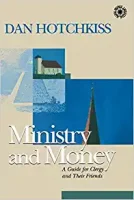
Most boards know they shouldn’t micromanage. Meddling boards irritate their staff and volunteers and stifle creativity. Boards lack the day-to-day involvement a good manager should have. Most board members know that, but still when people bring us questions, we give answers. We just can’t resist!
One reason is that we are very wise—why else would we occupy such high positions? Another is that people thank and praise us for decisiveness and clarity—and for relieving them of hard decisions and responsibility for the results.
We know—don’t we?—that by giving overly detailed answers, we block others from bringing the full benefit of their own insights and perspectives. Yes, a board’s job is to lead—but smart leaders leave space for others to think creatively and find solutions we would never have imagined.
Smart boards give directions that are not too large and not too small. In helping boards and other leaders find that sweet spot, I have found two questions especially helpful: “What would be GOOD about that?” and “What would we DO about that?”
Hymnals: Red and Blue
Consider a church board confronted with unhappy congregants who show up to complain about old-fashioned hymns. They pit the old, red hymnal, full of four-part settings, against the new, blue one that has gender-neutral language and guitar charts. The congregants demand that the board toss the red book out and use the blue one in its place.
The minister explains that she has been working with the music director to teach the congregation to enjoy some newer songs, some of them much newer than the “new” blue hymnal—published, as she mentions gently, in the year the minister completed high school.
Board members propose one option after another. Some side with the red hymnal “to respect tradition.” Others want to toss the red book out and canonize the blue, in the name of “progress, and to attract more younger people.” One board member suggests a compromise: no more than 60% of each year’s hymns can come from either book.
First Question—About Purpose
The board was stuck, till someone said, “I admit I’ve never cared for the red hymnbook, but I don’t think picking hymnbooks is a decision we should make here at the board table. I have a question for everyone who wants to toss the red book out: “What would be GOOD about that?”
After a moment, one of the unhappy members said, “It would be good to stop announcing to all visitors that we’re all about the past!” The same board member asked again, “What would be good about that?”
After another moment’s pause, another board member said, “It would help us to attract younger adults in our community, so our church can pay its bills and survive.” After another pause, the minister found the courage to ask, “What would be good about that?”
A deeper conversation followed about members’ sorrow for the church’s past—and for their own past, when they were younger, and the “new” blue hymnal was still actually new. From this conversation, the board realized that it had more important work to do than to help their staff deal with congregant demands.
As one member put it, “I am realizing that we have not, as a board, decided what effect we want our worship to have in our community or in our members’ hearts. I suggest we spend time on that question in the coming year. In the meantime, we can clearly give authority in worship to our pastor.”
Second Question—About Strategy
The board seemed satisfied until a member said, “Our mission statement already addresses worship, and I think we should refer to it. Let’s delegate authority in worship to the pastor in the spirit of our mission ‘to worship God while developing genuine community.’”
Using the first question, “What would be GOOD about that?” the board had lifted its conversation out of the weeds of micromanagement upward toward the realm of mission and purpose—maybe even just a little too far!
A member said, “With due respect to those who crafted our great mission statement, in this context, it seems a little lofty.” To keep the conversation from floating off like a balloon, she asked a second simple question: “What would we DO about that?”
After another silence, someone said, “I never realized it before, but the words in our mission “to worship God while developing genuine community,” actually pose a dilemma. Sometimes God calls us to be uncomfortable, especially when it comes to worshiping with people who respond to different kinds of music. What would we do about that? I’m sure we will continue singing. But we need to choose whom we are called to welcome and decide what how uncomfortable we’re willing to be to make that happen. To do that, our pastor and music director will need to know they have our support.”
The member who had spoken first said, “I agree that we could give some guidance to our minister about worship. But that will take some time. For now, I move we say: ‘In leading worship, we expect our pastor to consider and find ways to meet the needs of long-time members and also to touch new hearts through word and music.’ We can improve on that someday, but for now I’d rather give a little guidance rather than just platitudes.”
Not Too Big and Not Too Small
The two questions bracket two sides of a dilemma boards face when they try to offer leadership at the right level. The first helps lift the board out of micromanagement by stating the purpose it hopes to achieve, rather than by specifying the exact steps somebody else should take: “What would be GOOD about that?”
The second question saves boards from taking refuge in the lofty skies of generality. To be useful, a board’s leadership needs to be abstract and general—but concrete enough to influence the daily choices of staff and volunteers. To have influence for good, a board’s decisions must point to actual strategic choices. In other words, when the board says, “We should do this,” it should be possible to imagine the congregation (or some congregation somewhere) doing something different. The second question helps to rescue board pronouncements from extreme abstraction: “What would we DO about that?”
One word of caution: for the board to function effectively at the “just right” level, all board members must be prepared to support their staff leader who is acting on the goals and policies agreed upon. Even members who wish the policy were different must affirm that it was adopted legitimately. No fair trying to re-litigate the board meeting in the parking lot!
Every congregation, every day, lives by its past strategic choices—name, location, denominational affiliation, language, worship style—that profoundly shape the good it can do. On most days, we stick to our old choices by default. But now and then, boards lead their people into new strategic choices. To make that kind of leadership effective, boards must learn to speak the language of concrete abstraction—casting visions big enough to spark creative energy in others and concrete enough to harness and align those energies.
Dan Hotchkiss has consulted with a wide spectrum of churches, synagogues, and other organizations spanning 33 denominational families. Through his coaching, teaching, and writing, Dan has touched the lives of an even wider range of leaders. His focus is to help organizations engage their constituents in discerning what their mission calls for at a given time, and to empower leaders to act boldly and creatively.
Dan coaches leaders and consults selectively with congregations and other mission-driven groups, mostly by phone and videoconference, from his home near Boston. Prior to consulting independently, Dan served as a Unitarian Universalist parish minister, denominational executive, and senior consultant for the Alban Institute.


